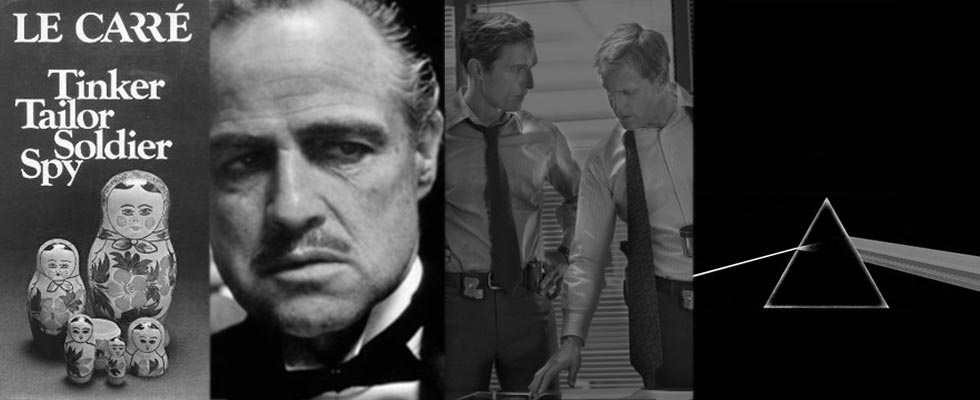It would be lazy to say that Garry Shandling was more than just a comedian, a statement delving into the realm of predictability, and one that would have annoyed the man who never found comfort in the banality of ambling along previously charted paths. In fact, he couldn’t find comfort in much of anything, a predominant thread running through all four hours of the recent HBO miniseries, “The Zen Of Garry Shandling.”
Director Judd Apatow has had a profitable career creating movies about wimpy, whining, emotionally vacant men, and their never-ending failure to relate to stronger, more together women. These flicks, (always about 40 minutes too long,) may not be our first choice on a rainy Friday night, but they have connected with younger generations who can’t seem to figure out why men and women are, and should be, two completely different species. Aside from his slacking and sunken-chested blueprint for the modern male, he does come across as a decent sort. Which is likely why he was drawn to and became a confidant of the reticent comedian early in his own journey. Apatow’s documentary deserves to be viewed as a triumph over the silliness of his previous low-rent comedies. It is a stunning work of deep-rooted compassion, full of sharp edges and contradictions. Much like the subject himself.
Apatow lines up a full bench of big names and former associates to talk around and about the mystery that was Garry Shandling, whose prickly personality can’t diminish the reverence conveyed, even from those he warred with or sided against. It is striking that someone with so many doubts, insecurities, and at times, self-hatred, somehow found a way to offer meaningful support to those lucky enough to be in his circle. Or that someone who spent his entire life silently mourning the childhood loss of his brother, could take on the mantle of a mentoring older sibling, even one who himself was so emotionally closed and lonely.
What insufficient joy he could create and briefly sustain was always tied to the work, not just the performance, but the work – what it required to get oneself stage-ready. Shandling had a refined focus, and in concert with the ceaseless self-deprecation and whining lilt, had no trouble pulling everyone into his corner. No matter how bad we might have it, Garry had it worse, or at least the Garry who entertained us. The development of that persona was certainly organic, but for its master, turned into a crutch far more debilitating than inspiring.
Shandling was the Jewish son of a Chicago store owner who mostly grew up in Arizona, where his parents relocated in hopes of alleviating older brother Barry’s Cystic Fibrosis. His brother died when Garry was 10, and his most vivid memory of that time was of his parents refusing to allow him attend the funeral. This after not letting him sit with his bedridden brother as he became weaker. The result would be 55 years of guilt and doubt survivor Garry could never rally past, or rarely talk about, with anyone. His mother, who should have been there for him, shut down any talk of his brother for the rest of her life.
Even for those who knew him only through the brilliant and extraordinary work he put before us, the back story and how it came to mold a sad and creative young boy begins to make a certain kind of sense. Within the weighted burden of non-grieved loss, Shandling tried for years to emotionally course-correct, spending his adult life seeking respite from the constant battle with his own mental shade. He was a high functioning depressive, who found guidance in Buddhism, and later a physically spiritual outlet through boxing. Shandling wasn’t a great or even gifted athlete, but he loved sports and was a decent enough jock, (much better than anyone knew,) holding weekly basketball games at his house for friends and co-workers. Through sports and especially in the ring, he expanded his understanding of authentic moments, coming to appreciate how athletics can clear the cluttering mental debris, and if we’re lucky, offer a bit of peace.
Though nothing in this tribute is more poignant than the hand-written journals Shandling obsessed over. Loaded with thoughts, in-process jokes, theories and existential philosophy, these hundreds of yellow legal pads proved to be his only reliable coping mechanism. Two years after his death, they are the most reliable glimpses into the inner-workings of a tortured, thinking-man’s guy.
At the same time, Apatow pulls no punches, revealing the petty, vindictive, ruthless and perpetually fearful side of his friend’s genius. Shandling was forever at war with himself over what success was, what it looked like, and what it said about him. As a creative innovator, he of course needed the adulation and a showcase for his talent. His standup was so flawless he became a Carson favorite and for a time, a permanent guest host. He created two comedic standout television shows. The later effort, “The Larry Sanders Show,” poised him playing a fictional late night host surrounded by real celebrities playing themselves. Sanders might arguably be, along with “The Wire,” the very best we have ever seen on the small screen. Much like “The Wire,” it was too inside it’s own story for most to relate to or bother to try and understand. In these shows, everyone had grand agendas, and no one came off well. On the rare occasions sentimentality threatened to invade narrative, it was righteously and brutally snuffed out.
Shandling understood that in his business, show business, better nature and humanity barely existed, and if it somehow they did, they wouldn’t take long to transform to the vulgar, materialistic and shitty. He accepted early on that he would be a breathing and viable part of that world, and would never apologize for needing it. Like his stage persona, he was a mess with women and relationships. He could lash out as easily as he could be hurt, which made him human, and not unlike most everyone else. No better or worse.
We are however, grateful to have been witness to what we were given. Shandling never allowed himself to veg, or mentally slouch. He ceased production on all projects when when he felt it was in danger of slipping. None hit harder than “Sanders,” which many of us foolishly hoped would continue for years. As he scribbled so often in his journals, he remained most committed to the work behind the product.
When in doubt, escape the noise and take comfort in the work. That which is decent will always evolve, and sustain, from the work.


